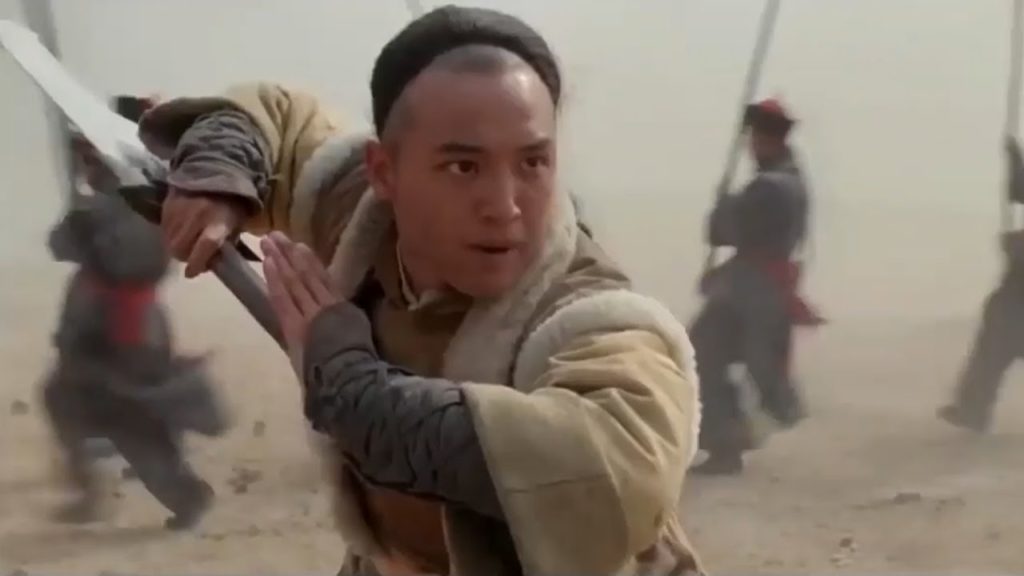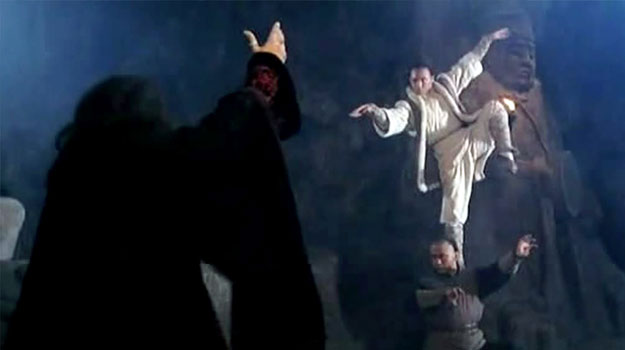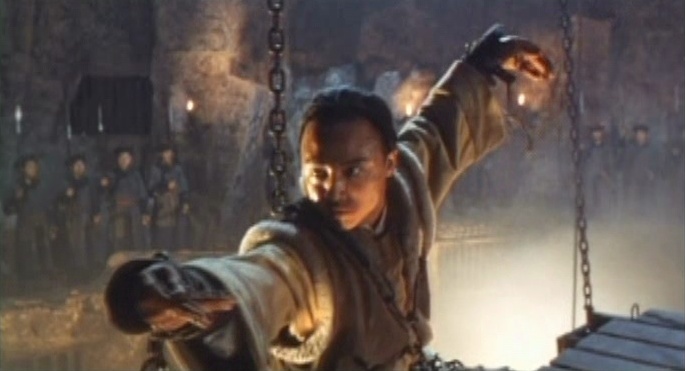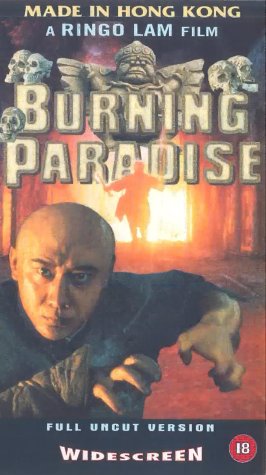
The “Check The Back Shelf” series returns with another look at the weirder world of cinema that video stores provided beyond the “New Releases” section. These unusual treasures were in the back of the shop, tucked away from the casual movie fans. B-movies, horror, foreign films, and rare bootlegs were just some of what was waiting there to be discovered.
By Matthew Essary (Twitter: @WheelsCritic)
The 1994 Hong Kong film BURNING PARADISE (aka BURNING OF THE TEMPLE aka BURNING PARADISE IN HELL) could easily be re-titled “Fong Sai Yuk and The Temple of Doom”. Let me explain…
Fong Sai Yuk is a folk hero in China. A mischievous but righteous young martial artist. He is mostly known in the West due to having been played by martial arts megastar Jet Li in two films by director Corey Yuen (FONG SAI YUK 1 & 2 aka THE LEGEND 1 & 2).

Here, Sai Yuk is played by newcomer Willie Chi (DRUNKEN MASTER 3). Chi was a very competent screen fighter but lacked the boyish charm of Jet Li in the role and outside of this film and a few others released in the following two years- Chi never mounted much of a film career. The real marquee attraction in BURNING PARADISE, however, is the film making team of producer Tsui Hark (THE BLADE) and director Ringo Lam (CITY ON FIRE).
Tsui Hark is often referred to as the “Stephen Spielberg of Asia” due to his string of hits at the box office through the 80s and 90s and his love of trying to push Hong Kong film forward with innovative film techniques and the use of special effects that weren’t normally seen in the region .
BURNING PARADISE is a wuxia film. To clarify, “wuxia” is a beloved genre of film in China based on classic martial arts adventure stories. The heroes in these stories are chivalrous, the villains are dastardly, and martial arts skills are basically super powers. The characters fly through the air, with the aid of wire harnesses, and battle it out in morality plays that are not dissimilar to the western idea of the “super hero” film. This is the only wuxia of Lam’s career and he gives it his all.

Tsui Hark later stated in interviews that while he was hired by the studio to watch over Lam during production, he admired what was being done so much by the gritty auteur that he simply stayed out of Lam’s way and protected him from outside interference.
It shows too. If you ever wondered what a wuxia film would look like from the man who made the bleak “ON FIRE” series of films, then BURNING PARADISE answers that curiosity fully. Despite a few moments of silly comedy (a staple of the wuxia film genre), BURNING PARADISE is a bleak, violent, and surprisingly gory martial arts film.

The story begins with the legendary destruction of the Shaolin Temple by the villainous Manchu forces. The army rounds up the surviving monks and imprisons them in The Red Lotus Temple, a chamber of horrors (and traps) controlled by an insane general (played by veteran HK film actor Wong Kam-Kong). Fong Sai Yuk, wielding a giant anime-style sword, and his uncle, escape capture briefly but are eventually caught by the evil forces. Sai Yuk is then sent off to the nightmarish temple to join the rest of the prisoners. Once imprisoned there, Sai Yuk has to fight to save his fellow Shaolin brothers and get them out of the treacherous temple alive.
Ringo Lam has always had sensibilities as a director that leaned toward the dark and brutal and while the film has dynamically-filmed, fun and thrilling action scenes (and the aforementioned silly comedy), the tone is often more in line with a horror film. There are establishing shots of piles of skulls outside the temple, half-buried skeletons, and ominous caverns throughout the runtime of the film.

The horror elements are readily apparent in the violence as well. Whether it’s an evil soldier being cut in two by the hero’s oversized blade or a poor soul falling into one of the Red Lotus Temple’s numerous booby traps, deaths are met with massive sprays of fake blood and practical gore effects. At times, the film feels like it has more in common with EVIL DEAD 2 than it does any other film about the Fong Sai Yuk character.
The bleak and violent nature of the film caused it to be a massive financial failure in Hong Kong. The top-notch action and unique sensibilities of BURNING PARADISE, however, make it an underrated classic to myself and many others though. It is a must-see for any martial arts, Ringo Lam, or new wave Hong Kong film fan.

